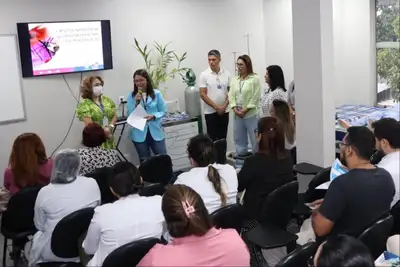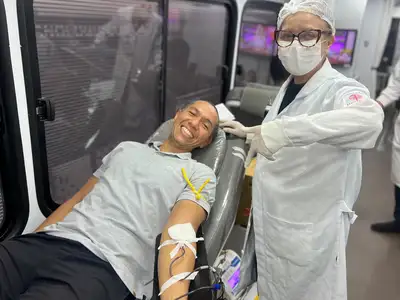Santa Casa Foundation conducts about 400 heel prick tests per month
The hospital conducted 2,038 tests this year. Preventive exams help identify diseases in newborns before they cause serious problems.
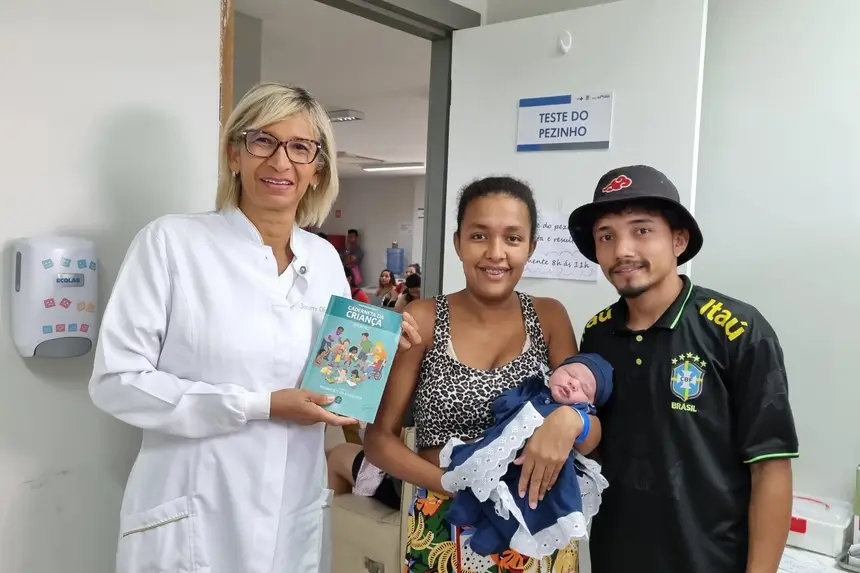
In the first five months of 2025, the heel prick test sector at Santa Casa Foundation has already conducted a total of 2,038 tests. The average is 400 per month, which speeds up the essential procedure for diagnosing diseases that, if treated early, can have their consequences minimized.
According to the Ministry of Health, the heel prick test is mandatory and free for all newborns, and the blood collection should ideally be performed between the 3rd and 5th day of the baby's life. The Santa Casa Foundation offers the test for all newborns in its maternity ward, but this depends on spontaneous demand, meaning parents decide whether they want to submit their children to the heel prick test, either in the maternity ward right after birth or at another time.
Gael and Bryan were born at Santa Casa and had immediate access to the heel prick test at the hospital, by their parents' decision. The sample for Gael's test was collected at the bedside, even before discharge; and Bryan's in the heel prick test room with laboratory technician Socorro Oliveira, who has been collecting samples for newborn tests for over 3 years.
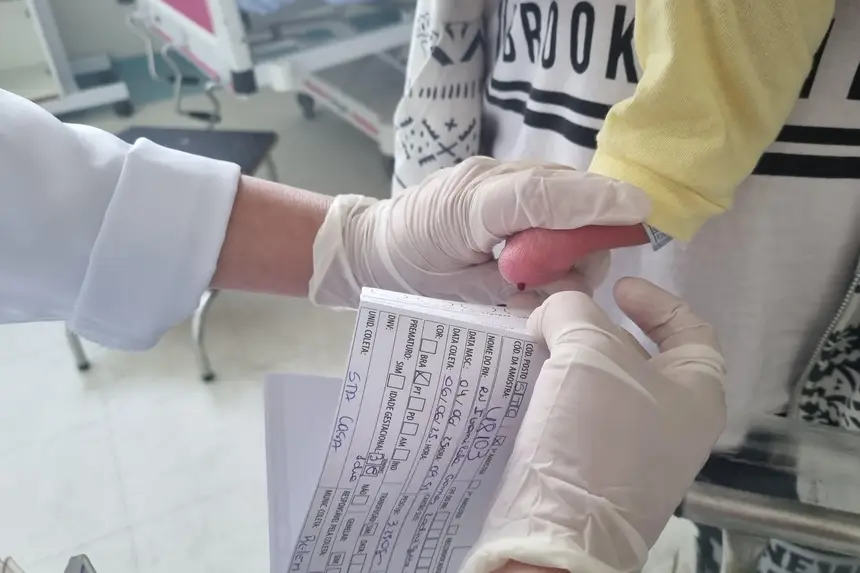
"The heel prick test room, which operates from 8 am to 11 am here in the Pediatric Outpatient Clinic of Santa Casa, is exclusively for collecting samples for the tests of babies born in the hospital itself. From Monday to Friday, we receive these children and also go to the bedside in the maternity ward or nursery to collect samples when necessary," explains laboratory technician Socorro Oliveira.
"There are treatments to prevent the sequelae caused by these diseases, many of which are considered serious and can lead to death if not treated. For example, phenylketonuria (a metabolic disease), when detected early, can be treated with diet; congenital hypothyroidism is treated with thyroid hormone replacement; cystic fibrosis and biotinidase deficiency require early treatment with enzyme use among other procedures," says neonatologist Salma Saraty, head of neonatology at Santa Casa.
Brenda and Bruno Furtado, parents of Bryen, who was born at the end of May at Santa Casa, decided to have the test done in the maternity ward and took the baby after discharge to have the test in the hospital's collection room.
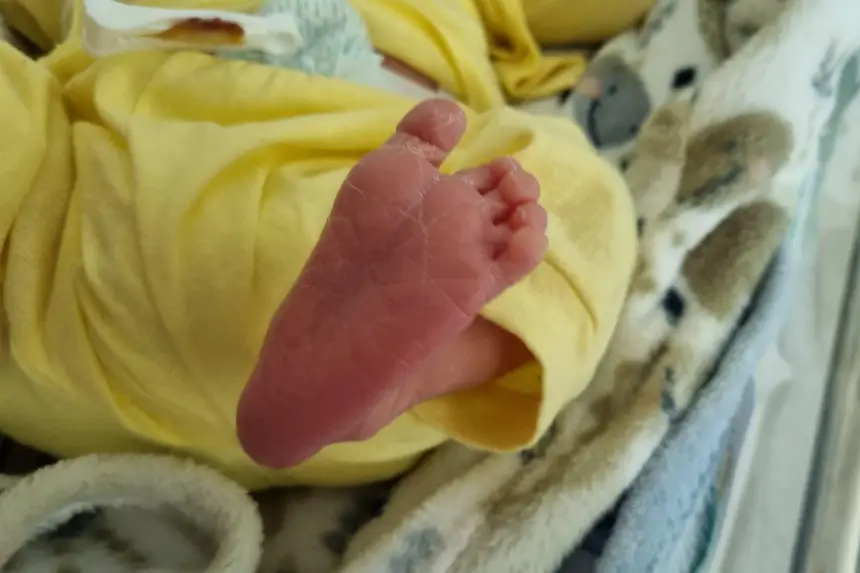
"My first daughter was born at Santa Casa and had the test before leaving the maternity ward, and now we brought Bryan to do it here. It is very important for us to know how our children's health is as soon as possible, so we can take the right precautions and measures," says the baby's father, Bruno Furtado.
The heel prick test at Santa Casa is performed only for babies born in the maternity ward, but parents of children born in other locations, whether in Belém or in the interior of the state, should seek the nearest basic health units after the first 48 hours of birth and preferably by the 5th day of the child's life, armed with the birth certificate or declaration of live birth of the child and the identity of the guardians.
See what the SUS heel prick test can detect:
Phenylketonuria is a metabolic disorder that occurs in babies born without the ability to normally break down an amino acid. This disorder is caused by the inability to metabolize the amino acid phenylalanine, which can lead to brain damage if untreated; congenital hypothyroidism, a deficiency of thyroid hormone that can cause developmental delays and cognitive problems;
Sickle cell disease affects hemoglobin, causing deformities in red blood cells and anemia;
Cystic fibrosis is a genetic disease that affects the lungs and other organs, causing excessive mucus production and respiratory difficulties;
Congenital adrenal hyperplasia is a condition that affects the adrenal glands, causing excessive production of male hormones and other problems;
Biotinidase deficiency: a genetic disease that affects the production of the enzyme that is important for metabolism;
Congenital toxoplasmosis, an infection caused by the protozoan Toxoplasma gondii, which can cause damage to the fetus and the newborn.



